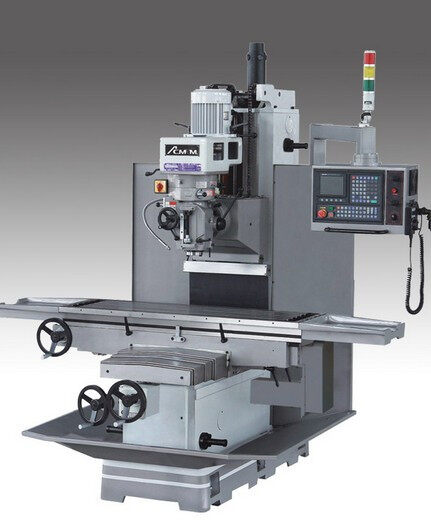Email format error
Email cannot be empty
Email already exists
6-20 characters(letters plus numbers only)
The password is inconsistent
Email format error
Email cannot be empty
Email does not exist
6-20 characters(letters plus numbers only)
The password is inconsistent

News
Types and Applications of Common Milling Cutters for Vertical CNC Milling Machines(3)
Common tools for machining molds with vertical CNC milling machines -- mold milling cutters
When machining dies cavity and three-dimensional forming surface on a vertical milling machine, a die milling cutter is used. A mold milling cutter can be divided into cylindrical ball-end milling cutter, conical ball-end milling cutter, and conical flat-end milling cutter according to the shape of the working part. Generally, a mold milling cutter with a smaller diameter specification is often selected, which can flexibly process some curved surfaces and inclined die surfaces on the mold. The cutting edges on the cylindrical surface, conical surface, and spherical surface of the die milling cutter are the main cutting edges. In milling, the milling cutter can make feed movement along with the axial and radial directions.

- ball end mill
The ball end milling cutter processes the cavity by oblique line milling or spiral interpolation milling, which is suitable for high-speed machining. However, since the cutting speed of the ball end of the ball milling cutter is 0, it is generally not recommended to use the ball end milling cutter for axial feed. To ensure machining accuracy, the top cutting usually adopts a very small row spacing, so the ball-end milling cutter is often used for surface finishing.
- conical milling cutter
Conical half angles of conical milling cutter include 3 °, 7 °, 10 °, 30 °, etc. A conical die milling cutter is widely used in the field of die processing. As a forming tool, it can easily process the inclined plane with high production efficiency and simple programming. However, it should be noted that the appropriate milling cutter should be selected according to the requirements of the die angle and inclined plane.
Difference between ordinary end milling cutter and drill milling cutter
There is a central hole in the center of the end face of an ordinary end milling cutter, which generally cannot be fed axially. Although the drilling and milling cutter is an end milling cutter, at least one pair of cutting edges on the end face are connected, that is, the cutting edge is over center, which has the functions of both drill bit and end milling cutter. Therefore, it can be fed axially, but a lower cutting feed speed should be selected. In some numerical control competitions, this new type of drilling and milling cutter is often used, which has high machining efficiency and quality.
Selection of milling cutter
In the actual NC milling process, appropriate cutting tools should be selected according to the material, geometry, surface quality requirements, heat treatment status, cutting performance, and machining allowance of the machined parts, and the size of the cutting tools should be adapted to the surface size of the machined workpiece. For example, although the face milling cutter and end milling cutter can process the plane, if the area of the plane is large, the face milling cutter is preferred. In the machining of the peripheral contour of plane parts, end mills are generally used. When machining the rough surface or rough machining holes, the "corn milling cutter" with cemented carbide inserts can be selected. For groove milling, end milling cutter and keyway milling cutter can be used for open grooves or through the groove. If it is a round head closed keyway, a keyway milling cutter should be used. If it is a round bottom groove, a ball end milling cutter should be considered.
Make a purchase of benchtop 3 axis cnc milling machine, concrete cnc milling machine, precision cnc milling machine from China, you can get them at a good price if you have a large quantity. We hope to be your long-term partner.

